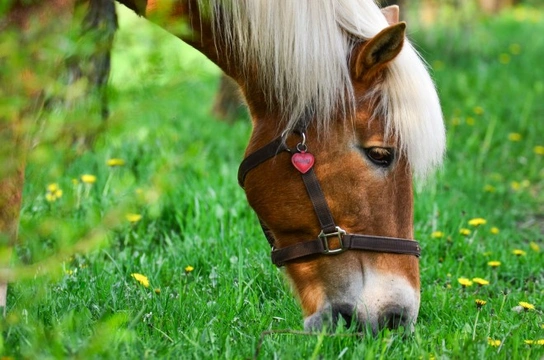Pets
Pets for studWanted petsBreedersAccessories & services
Knowledge hub
Support
Support & safety portal
Horse Nutrition - The Basics
With the show season here, it's time to take a look at just what you are feeding your horse because a well-balanced diet means a happier and healthier horse for the months to come. The first thing you need to assess is your horse's body condition and to do this you would need establish whether they are carrying the right amount of weight and that they are not too heavy or too thin which is often the case following the harder winter months.
Establishing Body Condition
One very useful tool is the Henneke body scoring system which helps establish whether a horse is too fat or too thin. The ideal body condition score is anything between 4 and 6. A score of 1 would show a horse to be emaciated whereas a 9 would indicate obesity.
The ideal score is 5 with a horse having a slight to moderate cover of fat on the crests of their necks, over their ribs, behind their shoulders as well as over their loins. One thing to bear in mind is that you should be able to feel a horse's ribs rather than see them.
Assessing Your Horse's Weight
The best way to assess your horse's weight is by using a weight tape, unless you have access to a large farm scale, that is. You would need to place the tape quite tightly at the highest point of the withers and around the horse's entire girth, but still be able to fit a couple of fingers under it. This will give you an estimation of their weight, but you need to bear in mind this is just an estimate which might be 50 lbs out either way.
However, along with weight there are other things to factor in when assessing a horse's nutritional needs which includes their age, the amount of exercise they are being given, the type of horse and their body condition. All of these things would need to be factored in to establish how many calories, fat, protein, vitamins and minerals a horse would need to eat to fulfil their nutritional needs.
Forage: Best Place to Start
It's recommended that horses should eat anything between 1.5 to 2.5 per cent of their actual body weight in good quality forage on a daily basis. Although, good doers would need to be fed less and horses that have problems keeping the weight on would need to be at the higher end of the scale.
Good quality forage is the building block of every equine feeding program because it provides horses with all the basic nutritional needs for them to remain healthy. However, horses at rest and turned out on good quality pasture would be getting all they need too.
The Do's and Don'ts of Feeding Your Horse
The Do's
- Maximise the amount of forage you feed your horse before offering them any hard feed
- Feed by weight rather than volume
- Place hay in nets or racks to minimise the amount of waste which happens if you feed on the ground
- Always keep an eye on the pecking order if you feed horses in a group when they are out in a field making sure all of them are getting their fair share
- Make any changes to a horse's diet slowly to avoid upsetting their digestive systems, ideally this needs to be done over a 1 to 2 week period
- Only offer hard feed based on the level of work a horse is being given
- Always feed at the same time of day to avoid upsetting your horse's GI tract
The Don'ts
- Never feed anything over 11 lbs of hard feed a day and limit each feed to 4.5 lbs otherwise the risk of a horse getting colic is multiplied six-fold
- You shouldn't worry about your horse getting too “hot” when fed a lot of protein. You need to remember that as little as 10% of their energy is provided by protein which is not enough to be a problem
- You don't have to feed any supplements to your horse unless they are really needed or a vet has recommended you do
- You shouldn't feed your horse any hard feed just for the sake of it – they should be getting all their nutritional needs from good quality forage unless they are in heavy work that is.
The Importance of Water and Salt
Horses need to drink a lot of water to stay healthy due to their large size. On average this can be anything from 5 to 10 gallons in a day. However, you need to factor in other things such as the amount of exercise they are given, how hot the weather is and how much they sweat. On top of this, the amount of hay they eat will have a direct effect on the amount of water a horse may drink. It's also important that horses have access to a salt block or to be fed salt in their hard feed rations especially if they are in hard work and therefore sweat a lot.
Conclusion
If you are at all unsure about how much you should be feeding your horse, you should discuss things with your vet or with an equine nutritionist because getting it right is important to the overall health and well-being of your horse. Following the winter months, a lot of horses are not in top condition when they are bought back into work which is why you need to assess their body condition and weight before establishing a feed programme to suit the type of work you have planned for them over the warmer summer months.



